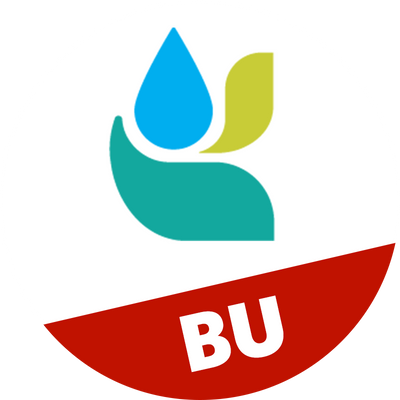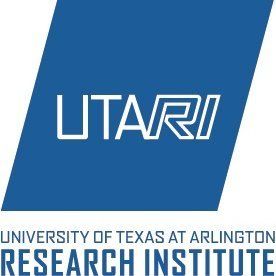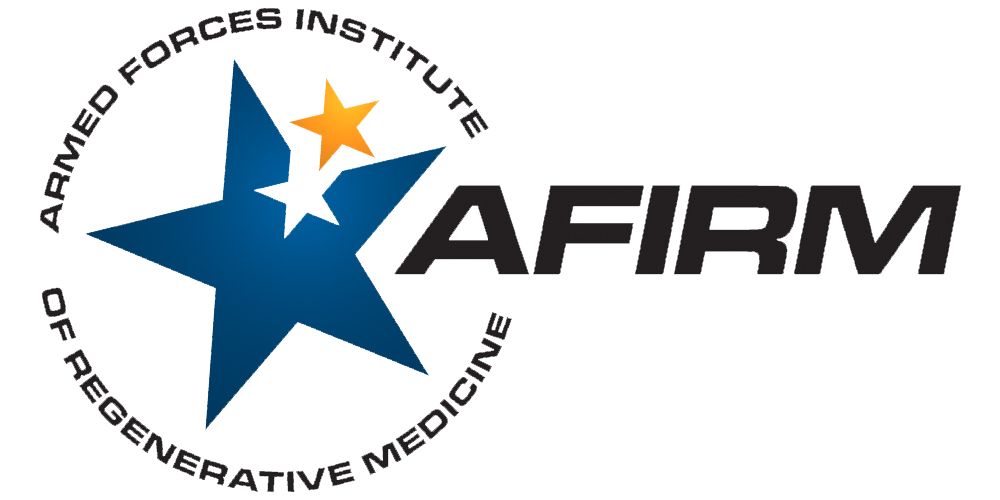Compartment Syndrome
Managing and treating pressure-induced tissue damage.
43 Members with Compartment Syndrome capabilities

Georgia Southern University is a vibrant institution with over 26,100 students across three campuses in Statesboro, Savannah, and Hinesville. The university offers 132 degree programs at the associate, bachelor’s, master’s, and doctorate levels, emphasizing student success, community impact, and research excellence. With a commitment to inclusivity and engagement, Georgia Southern fosters a supportive environment for diverse learners, including military-affiliated and adult students. The university is dedicated to transforming lives through education and community engagement, aligning its programs with regional needs. Additionally, Georgia Southern provides accelerated pathways for students to fast-track their master's degrees, enhancing educational opportunities. The university also emphasizes career readiness and public impact research, preparing students for successful careers and contributing to community development.

Stream Biomedical, Inc. is a clinical-stage biopharmaceutical company focused on developing first-in-class targeted therapeutics for acute neurotrauma and chronic neurodegenerative diseases. The company is dedicated to revolutionizing cerebrovascular repair and developing novel solutions for neurotrauma and neurodegeneration, including conditions such as stroke, traumatic brain injury, and Alzheimer's disease.

MTF Biologics is a leading non-profit organization dedicated to saving and healing lives by honoring the gift of tissue donation. They process tissue grafts from human donors for a wide range of clinical applications, positively impacting lives globally. MTF Biologics integrates service, science, and advocacy to improve healthcare and wellbeing, while also supporting research and innovation in tissue transplantation.

Massachusetts General Hospital (Mass General) is a world-renowned academic medical center and the original and largest teaching hospital of Harvard Medical School. Mass General is recognized for its commitment to high-quality patient care, innovative research, and comprehensive educational opportunities. The hospital operates the largest hospital-based research program in the United States, fostering collaboration among leading clinicians and scientists to bridge innovation science with state-of-the-art clinical medicine. Mass General for Children (MGfC) is a leader in pediatric care, offering more than 50 medical specialties and 15 surgical services, and is home to the only proton beam facility in New England. The hospital is dedicated to serving local and global communities, training the next generation of healthcare professionals, and advancing medical knowledge through groundbreaking research, multidisciplinary care, and a strong commitment to family-centered and equitable healthcare.

Auburn University Research & Economic Development is dedicated to advancing research and economic growth through a collaborative effort among its various colleges and departments. The organization focuses on fostering innovation, supporting faculty and student research, and facilitating partnerships with industry and government to address societal challenges and enhance the quality of life. Recent initiatives include the launch of the Team Science Series to promote interdisciplinary collaboration and the development of the Gulf Coast Engineering Research Station to address coastal environmental challenges.

Spartan Medical is a medical solutions company serving VA medical centers, Department of Defense (DoD) facilities, civilian hospitals, and ambulatory surgery centers across the United States and internationally. The company specializes in advanced medical devices, surgical solutions, and support services, with a history of adapting to emergent healthcare challenges and logistical demands. Spartan Medical has provided solutions in public health crises, such as COVID-19 mitigation, and delivers comprehensive procurement, logistical, and operational support for healthcare organizations. It operates as a certified Service-Disabled Veteran-Owned Small Business (SDVOSB) and is recognized for its significant presence in federal healthcare contracting.

Boston University is a major research institution committed to leading breakthroughs across various disciplines. The Office of Research supports and advances research excellence, fostering collaboration among researchers, industry partners, and government leaders to address significant societal challenges.

Baylor University is a preeminent Christian research university committed to addressing the world's most meaningful challenges through top-tier research and scholarship. Recognized as an R1 research institution, Baylor focuses on infusing its distinct Christian mission into its research initiatives, fostering a commitment to excellence and innovation.
Exponent is a multidisciplinary science and engineering consulting firm serving sectors including healthcare, energy, manufacturing, and consumer products. The firm offers technical, regulatory, and risk management expertise supporting clients across the product lifecycle, with capabilities in advanced analytical modeling, laboratory and field testing, product safety, failure analysis, and regulatory compliance. Exponent's professionals contribute peer-reviewed research and leadership to major scientific and engineering forums.

TYBR Health is dedicated to revolutionizing post-operative recovery through innovative biomaterial therapies. Their mission is to empower surgeons and enhance patient outcomes by simplifying the recovery process and improving the body's natural healing capabilities.
The UVM An-Cockrell Lab Center for Biomedical Digital Twins is a multidisciplinary research group leveraging advanced computational methods, including machine learning, agent-based modeling, and high-performance computing, to study complex biomedical and physiological phenomena. Their mission is to bridge the gap between basic science and clinical interventions by developing digital twins and computational models that inform precision medicine, therapeutic discovery, and translational research. The lab's work spans detailed organ and disease modeling, AI-driven clinical applications, and collaborative projects such as DARPA-funded initiatives, aiming to revolutionize healthcare through technology and simulation.

Profusa, Inc. is a pioneering digital health company based in the San Francisco Bay Area, dedicated to making the body’s chemistry easily accessible to improve health and wellness. Profusa develops tissue-integrating biosensors for continuous, real-time monitoring of body chemistries, empowering individuals and clinicians with actionable, medical-grade data to transform personal health management and disease prevention. Their unique bioengineering approach overcomes the foreign body response, enabling long-term, in-body monitoring through tiny, flexible biosensors that become one with the body. Profusa’s technology platform supports both consumer and medical applications, with a vision to revolutionize personalized medicine and digital health. The company is supported by significant grant funding from agencies such as DARPA and NIH, and collaborates with leading academic, hospital, and industry partners worldwide.

Solventum is a healthcare company dedicated to enabling better, smarter, and safer healthcare solutions. With a legacy of innovation, Solventum focuses on improving patient outcomes through advanced medical technologies, oral care solutions, health information technology, and purification and filtration systems.

The UT Arlington Research Institute (UTARI) specializes in applying cutting-edge technologies to real-world engineering problems. Our collaborative endeavors reflect a commitment to excellence, integrity, and respect for all, bringing economic growth and fulfillment to our families, business partners, university, and community.

Smith+Nephew is a portfolio medical technology company focused on the repair, regeneration, and replacement of soft and hard tissue. The company aims to restore people's bodies and their self-belief by using technology to take the limits off living. With a commitment to medical education and improving patient outcomes, Smith+Nephew operates in over 100 countries and is dedicated to sustainability and community health. Their purpose is to promote health and wellbeing, not just through their products but also by ensuring a positive impact on society and the environment. Smith+Nephew is also committed to increasing diversity within the medical device industry through initiatives like the Orthopaedics for All global advisory board.

The Armed Forces Institute of Regenerative Medicine (AFIRM) , led by the Wake Forest Institute for Regenerative Medicine, is a collaborative effort involving over 30 academic institutions and industry partners. The consortium focuses on advancing regenerative medicine solutions for battlefield injuries, aiming to improve the lives of wounded service members, veterans, and the general public. With a $40 million, five-year award from the Defense Health Agency, AFIRM is dedicated to developing clinical therapies in areas such as craniofacial regeneration, extremity regeneration, genitourinary/lower abdomen, skin and wound healing, on-demand blood, and cellular therapies for trauma.

Theradaptive
Theradaptive’s RESTORE Trial Initiation for OsteoAdapt™ DE
Theradaptive launches RESTORE Phase I/II trial of OsteoAdapt™ DE for faster, precision bone healing in craniofacial injuries. MTEC-funded study targets improved recovery for military and civilian patients.
Altec
Autonomous Rehabilitation Device for Improved Recovery in Warfighters
The OSCIR platform—developed by Altec Inc in collaboration with the Naval Health Research Center—is bringing clinical-grade, real-time movement analysis to the front lines. Funded under MTEC-22-02-MPAI
Medical Technology Enterprise Consortium (MTEC)
The Power of IP: Why It Matters to MTEC and Our Mission
MTEC President highlights intellectual property as essential to protecting innovation, attracting investment, and enabling collaboration. A new partnership with Patenter.io supports members in managing and commercializing IP.
George Mason University
SMART-US Wearable Ultrasound + AI Device for Muscle Force Prediction
AI-powered ultrasound in a wearable—SMART-US delivers lab-grade muscle-force insights anywhere.